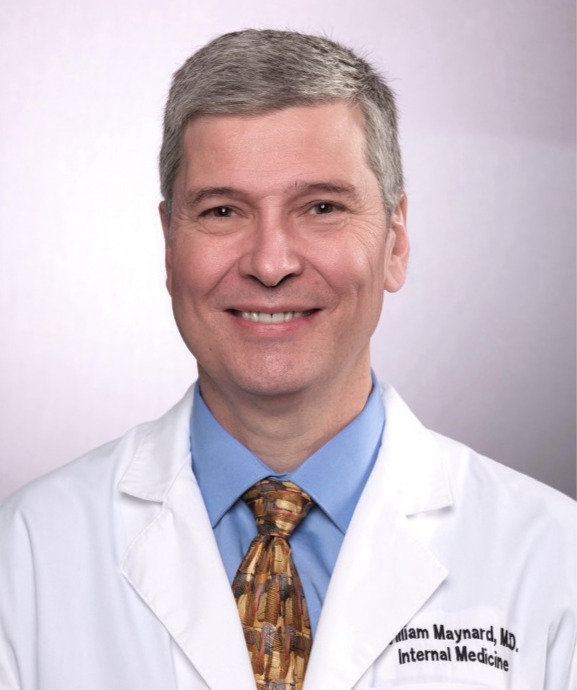

Science has brought undeniable blessings to the world. But its achievements over the past 400 years have enticed many in Western culture to enshrine science as the answer to everything and the only reliable source of truth.
Although this view (sometimes called scientism) is unscientific, it has led to the false perception that science and religion are opposed.
Can science and Christianity coexist, much less harmonize? I firmly believe so. Many of the greatest scientists in history have espoused belief in God.
For my part, as a practitioner of a scientific discipline (medicine), I am privileged to administer many wonderful benefits of the sciences. And as a Christian, I find my faith encouraged, rather than threatened, by science.
Psalm 19 tells us: “The heavens are telling of the glory of God; and their expanse is declaring the work of his hands.” God intends the created order, the domain of science, to be a means to communicate his existence and his attributes.
Consider that God has placed about 10 billion tiny capillaries inside your body, and that the total mileage of your body’s entire arterial system is more than 60,000 miles. That is long enough to go around the world more than twice!
The delicacy, intricacy, wisdom and care that a microscope can reveal in the human body drive me to my knees in worship of my Creator.
Science and faith accord beautifully. But we must not put too much credence in science as either a source of our doubts or our belief.
Scientific methods are fallible, and those who practice them are flawed humans.
Science is constantly changing. In my dynamic field, I find that many teachings are quickly outdated. In some cases, the tenets we held to be beyond questioning were in fact dead wrong all along. That is no shame: It is a strength of scientific dogma that it can change over time. Yet it is the strength and glory of the Bible that it has not changed in 2,000 years and does not need to. Indeed, Jesus claims that “Heaven and earth will pass away, but my words will not pass away” (Mark 13:31).
Sometimes I see Christians holding too tightly to some scientific discovery that supports a biblical passage. I think we should allow our faith to be encouraged by scientific findings, but not to rest too heavily on them. Biblical truth is more reliable and lasting than scientific truth!
Using science to prove the Bible can, ironically, make science into a higher authority than the Bible.
One of my college friends was an atheist, who confided that the fact that the moon’s rotation and revolution periods are equal made him wonder if God could exist. Suppose that I had seized upon this triviality and tried to use it, rather than the timeless truths of the Bible, as a tool to convince my friend to put his faith in Christ.
What then, if later measurements had demonstrated that the two periods were off by one-trillionth? His fledgling faith would have started out built upon the shifting sands of scientific dogma, rather than the eternal truths of Scripture.
In fact, my friend was drawn eventually to faith in Christ – not by scientific facts, but rather by the song “When I Survey the Wondrous Cross.”
The Bible speaks to the basis of our faith in this way: “Faith comes from hearing, and hearing by the word of Christ” (Romans 10:17). Science can encourage our faith and can be used as an apologetic tool for God’s truths, but the bedrock of our belief, as well as our outreach to the world, should be based primarily on the Bible.
Finally, an unhealthy emphasis on the authority of science by Christians and non-Christians alike misses a vital reality and is not as helpful in reaching the lost as we may suppose.
Many scientists who reject any sort of faith do so ultimately not because of an intellectual barrier, but rather an emotional, moral or spiritual one. A very intelligent colleague of mine once maintained an air of cool objectivity in avowing his atheism on scientific grounds. As I pushed him a little bit about Christ, he suddenly lashed out with surprising bitterness: “What has God ever done for me?”
How quickly the veil of scientific impartiality was torn away, revealing a hurting person in need of the love of God, rather than a scientist in need of a rationalistic explanation.
This article appeared in the Baptist and Reflector.
Bill Maynard earned a degree in physics from Vanderbilt University, a medical degree from the University of Tennessee, and is currently director of the Internal Medicine Residency Program at TriStar Centennial Medical Center and assistant professor of medicine at the Frist College of Medicine at Belmont University. Maynard serves as an elder at Grace Community Church (Nashville) and writes about science and Scripture at docsology.online.








